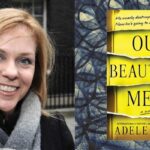
Who Gets to Decide What Counts as “English”?
On Decolonizing Language
In the preface to her charming debut, Sarong Party Girls, Cheryl Lu-Lien Tan draws attention to the fact that her novel is composed in Singlish, or Singaporean colloquial English, rather than standardized English. This matters, she writes, because the Singaporean government has orchestrated a number of campaigns, dating from 2000, to get Singaporeans to stop speaking Singlish and to, instead, “speak good English.” These campaigns paint standardized English as “good” and Singlish as bad, and, as a result, her decision to write her entire novel in Singlish is both a political and literary decision—though, of course, the political and the literary are almost always braided together at some level. Sarong Party Girls raises an important question, one old and yet always necessary all the same: who gets to decide what form of a language is “good?” And who gets to decide what is or is not “English?”
Tan’s decision to write in Singlish is rooted in the fact that there are things she can say in Singlish that she can’t convey in standardized English. Singlish, she writes, is “packed with attitude and humor and often is deliciously vulgar.” Tan, thankfully, almost never feels the need to translate terms that readers outside of Singapore might not be familiar with, like guniang or kopitiam; after all, the best writers can define words without defining them, by using context. I am reminded here of how, growing up in Dominica, our jokes sometimes only seemed to work if we told them in a certain way, that is, in some form of Dominican English or Creole. Some things can only be said in slang and patois, and slang and patois can only say certain things.
Indeed, one of the most powerful aspects of Tan’s novel, which follows its narrator, Jazzy—a Singaporean woman in her late twenties—and her three friends on a quest to find a white or ang moh husband, is the fact that Jazzy unashamedly writes the way she usually speaks. The language in her book is a form of resistance, a way to legitimize the way that someone like Jazzy—who, like her girlfriends, have given themselves English names rather than using the names they were born with—might actually speak. Her language, too, emphasizes an important theme in her novel: that Jazzy is a walking conflict. A difficult narrator to pull off well, Jazzy is dislikeable and frequently judgmental, aspires as her ideal to be “happening” and to have white “Chanel babies,” and is obsessed with social class and race to the point of temporarily cutting ties with close friends when they do not marry “right.” But Jazzy also grows aware of how superficial she is, of how much she has raised up whiteness as a symbol of social class and how much she has lowered that of nonwhite Singaporean men, or Ah Bengs. She wishes to impose a fully white and English identity onto herself through the social status she will gain by marrying an ang moh, yet she feels most herself by speaking in Singlish to her Singaporean girlfriends. She is an avatar of the marketplace, a woman who represents, for better or for worse, the messages that so many women are told about their self-worth: that it comes not from who you are, but what you appear to be. An old theme, of course, but one enriched both by a complex character and by the book’s simultaneously mundane and politicized language.
Certainly, there is nothing new in Tan’s approach in the history of literature in English. It joins a tradition that includes powerful texts that resist using standardized English so as to capture the way a character truly speaks: the Trinidadian English of Samuel Selvon’s The Lonely Londoners, the Jamaican English in Marlon James’ The Book of Night People and A Brief History of Seven Killings, the fragmented English of a Chinese-American immigrant in Gish Jen’s “Who’s Irish,” the simple conversational register of English in Amos Tutuola’s The Palm-Wine Drinkard, or the mix of English registers and Spanish in Junot Diaz’s fiction. “[M]ugging de Queen’s English / is the story of my life,” the Guyanese writer John Agard says in his famous paean to legitimizing nonstandard English, “Listen Mr Oxford Don.”
Tan’s novel represents something old and yet new all the same: the ever-expanding definition of what we mean by “literature in English,” and the lovely future that symbolizes—a world of linguistic freedom. Sometimes, people fear this. Some people fear that the more a language opens up, the more it becomes difficult to follow, an uncertain guide, like a lighthouse beam on an icy sea. But this is wrong. Language is always in a process, a la the philosophy of Bergson, of motion and evolution. To write in English means to write in a language that expands. A language in perpetual bloom.
Languages beget language. Portuguese and Spanish, at the place where speakers meet on the borders of Brazil, may become Portunol; Brazilian Portuguese, of course, is an evolution from its continental version, as is the Portuguese spoken in Angola, East Timor, Mozambique, and elsewhere. There are many Englishes, of course, though they all bear some sufficient degree of similarity to each other that fluent speakers of the language can understand them, at least to a degree. I grew up speaking different forms of English: a standardized British form, taught to us in our schools; Dominican English; and American English, the latter of which pervaded our television and media from the United States and which often crept into our spelling. In a way, defining English may depend on how we define its borders, or, perhaps, on how we negatively define it—that is, how we define what is not English. For a negative theologian like Angela of Foligno, the so-called Mistress of Theologians, God could be defined, in her view, by what he was not; I am not a believer, but there is certainly something intriguing, but also limiting, in the idea of defining what a language may be purely be what it is not. Rothko’s black paintings are at once as simple as can be and extraordinarily complex; so, too, is defining language, where what seems clear at first glance is much more shaded, much less simple, the longer we look at it.
Of course, many of us know intuitively that languages are malleable. We switch registers when we switch situations. When you are a cluster of minorities all in one, driving down a lonely American road which even the streetlamps have abandoned, the night surrounding your vehicle like a vast cloud of ink, you may well think of how to speak if a police cruiser suddenly appears behind you, lights flashing with the silent menace of some crumbling carnival sign. Do not look back. Do not become a pillar of salt. Do not become worse than a pillar of salt before this police officer who may believe, like the salt-maker, that he is a god. When the night surrounds you like the deep sea, sometimes choosing the right word is the way you find light, the way you escape from something that has not expected such language from you.
And when, one night earlier this year, I returned to my apartment to find lights abloom I had not left on and the contents of drawers strewn over the floor as if a little tornado had passed through, when I realized that both my new and old laptops were missing and more, when I realized, in short, that I, a woman living alone, had been burglarized, I lost my language at first. I was so unprepared and afraid that I could barely do more than whisper on the phone to my best friend, then to the police. The symbol of those flashing lights from before now meant something new in this situation; the officer who came to talk me through made me feel safe. Yet I was scared as he was there, all the same, wondering if my language—and, too, my voice—would give away that I was nervous and that I was trans, and if the latter would make this officer—like some before him—more likely to blame me as a victim for how I put myself out in the world. I wondered, even, if the fear in my voice would make him suspect I was not telling the truth about what had happened—and then I remembered that he must see this all the time, these terrified people struggling with voice and words under the horror that your sacred space has been violated—and perhaps, you wonder, it may happen again. There are many ways of speaking in the world; who gets to speak, and who gets to say what, are dark and cavernous questions.
Sometimes, we do not make the language of the world we inhabit. Instead, it makes us.
* * * *
If “writing in English” means that speakers of the language should have some sufficient degree of familiarity with a text in English to understand it, this raises some questions. Is Finnegans Wake written in English? In many ways, yes, insofar as it is filled with English words, from its first sentence onward, and even its invented words often echo the language. Yet the text, in its amalgamation of idiom and invented words, also seems to clearly go beyond English, which makes translating it at once immensely difficult and enlightening. Is Lewis Carroll’s “Jabberwocky” English? Obviously, yes, in that much of it is in standard English, and its invented vocabulary can often be understood by context, yet some of Carroll’s words, like “bandersnatch,” have no definitive meaning to this day and likely never will. George Saunders’ lovely epistolary fable, “Fox 8,” is written entirely in phonetic English from the perspective of a fox who, like Frankenstein’s monster, has learnt English, or “Yuman,” by listening to other people speak, and who, indicating the type of people the fox may be eavesdropping on, replaces words like “said” with “woslike.” Keri Hulme’s The Bone People freely modifies the spelling of English words and includes a number of Maori phrases, which Hulme, unlike Tan, translates in a glossary at the end of the book. George Herriman’s early-20th-century comic, Krazy Kat, plays with English almost like a Modernist text. Julia Alvarez’s poem, “Bilingual Sestina,” resolves the problem of English words not resonating the same for her as their Spanish dictionary counterparts by simply using Spanish words when English won’t suffice. The list goes on: Peter Carey’s The True History of the Kelly Gang. Some of Robert Burns’ poems. Orwell’s 1984 and Burgess’ A Clockwork Orange contributed neologisms we still use today.
All words, of course, are invented. (The infamous Voynich Manuscript, indeed, is made up entirely of what appear to be invented and seemingly impenetrable words and images.) And new words become part of a language, region by region, nation by nation, through usage. But at what point one language shifts into another is a bit more complex, and novels like Sarong Party Girls reflect this complexity; at what point does Singlish, or any variation on standardized English, become non-English? At the point where readers of English can no longer understand it—but where this point exists is more abstract than we may think. “Standard English,” the well-known sociolinguist Peter Trudgill wrote in 1992, is itself a variety of English: it is “the dialect of English which is normally used in writing, is spoken by educated native-speakers, and is taught to non-native speakers.” English, as an idea, becomes something like a field of stars: it is what it is, but it can also be rearranged into many constellations.
How languages beget new forms of language, or even entirely new languages, is another set of stories. Some of those stories are quite banal; others are stories that should terrify more than any tale of supernatural horror. The former of these may be as simple as contact between individuals or cultures or the isolation of speakers in a certain area; for the latter we can look to the violence of colonialism, to how new languages, and with them, new ways of constructing a hierarchy of the self and world, were imposed upon colonized or captured peoples, the way that, in Aime Cesaire’s words in Discourse on Colonialism, “colonization decivilizes the colonizer” and the colonized alike. Some of those isolated speakers I mentioned earlier found themselves in isolation not by choice, but through the legacy of these colonialisms. This linguistic imposition is often braided to the idea that the culture associated with said language is inherently better; this is why, the Kenyan writer Ngugi wa Thiong’o says in “Teach Me to Be Me,” Kenyan school systems in his childhood so often prioritized English literature over Kenyan literature, if the teachers considered African literatures worthy of discussion at all. Language begets language; but the begetting of language often comes, like other begettings, with blood.
Language is always braided, in some way, to power. Tutuola’s Nigerian novel The Palm-Wine Drinkard was considered “ignorant” to certain critics at the time of its publication in 1952 by virtue of its nonstandard English, yet similar linguistic experiments by writers from colonial powers from the same time period or earlier are often simply labeled intellectual projects. After all, as the Ugandan critic Taban Lo Liyong noted in an examination of Tutuola’s legacy, the work of Mark Twain and “Joyce is more ungrammatical than Tutuola,” yet we, Liyong writes, call Twain and Joyce’s works “classics” that we are meant to study, while attacking Tutuola for doing “violence” to the English language. It is chilling, yet unsurprising: one person’s violence is another’s celebration.
Like many things in this world, the beauty we may find in the many forms of a language across the globe coexists with something deeper and darker, something far, far less beautiful.
* * * *
Despite the literary legacy of nonstandard Englishes, and, more simply, how common nonstandard variants are for so many people in many situations, there’s still often a stigma attached to them. A good example of this occurred a few years ago with the much-publicized translation of the Bible into Jamaican patois, which divided Jamaicans and other Caribbean people. Faith Linton, a member of the Bible Society of the West Indies, had proposed doing this in the 1950s, but it was met with indignant scorn. “People were deeply ashamed of their mother tongue,” she said in 2012. But although there was less resistance in the 21st century, many Jamaicans still objected to the idea, arguing that it would dilute the scriptures and that it was just, well, embarrassing. I know this attitude well and held it myself when I was younger with regards to how I spoke. I was ashamed of what I thought of as my “broken” English when I went to college in America and tried, for a time, to erase it and my accent. It was foolish. But this—the assumption that someone is lesser simply for how they speak, regardless of what they say—is why novels like Tan’s, and the many before and after it, are important. Sarong Party Girls, in its defiance of the Speak Good English campaigns, challenges the old assumption that “good English” represents goodness of thought, goodness of person.
* * * *
So, what does it mean to write in English today? I confess: I don’t fully know. And I like that. Literature in English should be something ever more inclusive, something that continues to shift its borders—as should literatures in all other living languages. Literature in English must mean, by necessity, literature in many Englishes.
Sometimes, we learn the most about a language by breaking it, or learning how to use it in a way we never thought possible. In the best of times, we learn that breaking a language is not really breaking it at all, and that we are not breaking ourselves, either, but that we are building and blooming, instead.
Gabrielle Bellot
Gabrielle Bellot is a staff writer for Literary Hub. Her work has appeared in The New York Times, The Atlantic, The New York Review of Books, The New Yorker, The Paris Review Daily, The Cut, Tin House, The Guardian, Guernica, The Normal School, The Poetry Foundation, Lambda Literary, and many other places. She is working on her first collection of essays and a novel.



















